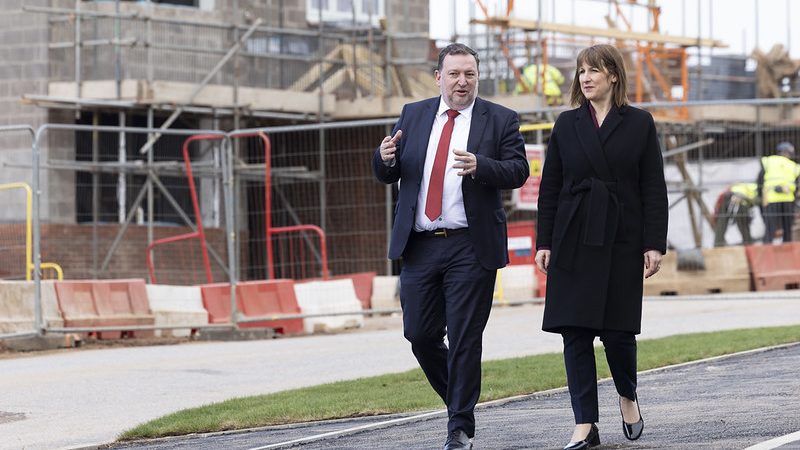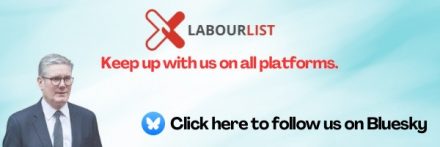
No Chancellor wants to be compared to Kwasi Kwarteng’s short-lived time at the Treasury.
But unfortunately, that’s increasingly the position Rachel Reeves finds herself in.
Ipsos’ snap-polling conducted immediately after this week’s Spring Statement shows half the public (51%) thinks Rachel Reeves is doing a bad job as Chancellor. Concerningly for her, this is up 7-percentage points from last month. Even worse, this is now just short of the verdict they delivered to Kwarteng after his infamous “mini-Budget” when he registered a 53% disapproval rating.
Reeves faced no easy challenge in reassuring the public. She was boxed in by her determination to stick to her fiscal rules and avoid extra borrowing, while also being locked into commitments to not raise taxes.
With limited options, she also had to contend with the doom music of the OBR halving their 2025 growth predictions to 1%.
It’s a classic polling story
But the public’s reaction shows she’s failed in her newly found mission to inspire optimism. Three in five (57%) say the Statement has left them more concerned about Britain’s economy than reassured. This is 12-percentage points higher than the proportion who said the same after her first Budget last October.
It’s a classic polling story as most of her spending announcements are popular when asked about individually, but collectively voters fear the overall package. Over half are in favour of spending more building affordable homes, training more construction workers and increasing defence spending next year. Besides boosted military spending, however, many of these polices haven’t cut through, with more people saying they haven’t heard of them than have.
READ MORE: List of councillors quitting over welfare amid further cuts
Welfare reform is the announcement which voters most recall hearing something about (unsurprisingly given it was trailed a week prior). It’s these policies where opinion is most divided. Around one in three (36%) support reducing welfare spending by changing disability, sickness and universal credit benefits, while the same proportion oppose it (35%). That’s not a recipe for a well-received fiscal event.
More widely these reforms pose a narrative issue for the Government. Ministers argue it’s a Labour value to encourage people back into work, but most now say “working people” are treated worse than they should be by the government (55%), while believing the opposite about “people on high incomes” (54% saying better than they should be). The welfare reforms also garner far more support from 2024 Conservatives than from Labour voters (48% vs. 36%).
At some point, you need to remind your own voters why they backed you
Here lies the electoral risk for the future. As well angering Labour MPs, welfare reforms threaten to alienate the government’s own voting coalition. Reducing poverty is among the top three priorities for 2024 Labour voters, but slightly more say they are doing a bad than good job in delivering (33% vs. 24%). Assessments that welfare changes could result in 250,000 more people overall living in relative poverty, including 55,000 children, will do little to convince them otherwise.
At some point, you need to remind your own voters why they backed you. If you don’t, they won’t return. That is a real challenge Labour is facing right now. Immediate reactions are not always the final word on how the public remember political events, but first impressions count, and Labour now need to get on with delivering.
READ MORE: ‘Ill thought out’ or ‘strong performance’? Reeves’ Spring Statement divides MPs
A partial silver lining for the “securonomics” Chancellor is that these savings meant protecting her “fiscal headroom”. Unfortunately, this buffer was wiped out by President Trump within hours of her being at the dispatch box, with his announcement of 25% tariffs on UK car manufacturers (and potentially more to come).
Unless a trade deal is secured between the UK and USA, then Reeves is already back at square one and looking for more difficult savings ahead of her Autumn Budget. It could be then that the pressure reaches boiling point.
Read more of our Spring Statement news and analysis:
- ‘Ill thought out’ or ‘strong performance’? Reeves’ Spring Statement divides MPs
- Reeves under fire from Labour’s three biggest unions
- List of councillors quitting over welfare amid further cuts
- The four Labour achievements Reeves is trumpeting
- MPs: ‘Let’s soothe the nation, not kick it in the teeth’
- Reeves ‘confident’ civil service could cut 10,000 roles as Blunkett decries fiscal rules
And read more commentary on the Spring Statement:
- ‘Why not draft in Martin Lewis to fill the fiscal hole?’
- ‘Ministers must reject failed Tory orthodoxies of the past and put people before profit again’
- ‘The Chancellor must not make foreign aid cuts worse’
- ‘People want New Labour-style spending now. Here’s why it’s just not possible’
For more from LabourList, subscribe to our daily newsletter roundup of all things Labour – and follow us on Bluesky, WhatsApp, Threads, X or Facebook .
- SHARE: If you have anything to share that we should be looking into or publishing about this story – or any other topic involving Labour– contact us (strictly anonymously if you wish) at [email protected].
- SUBSCRIBE: Sign up to LabourList’s morning email here for the best briefing on everything Labour, every weekday morning.
- DONATE: If you value our work, please chip in a few pounds a week and become one of our supporters, helping sustain and expand our coverage.
- PARTNER: If you or your organisation might be interested in partnering with us on sponsored events or projects, email [email protected].
- ADVERTISE: If your organisation would like to advertise or run sponsored pieces on LabourList‘s daily newsletter or website, contact our exclusive ad partners Total Politics at [email protected].





More from LabourList
‘Labour’s quiet quest for democratic renewal’
‘Labour promised to make work pay. Now it must deliver for young people’
‘Council Tax shouldn’t punish those who have the least or those we owe the most’